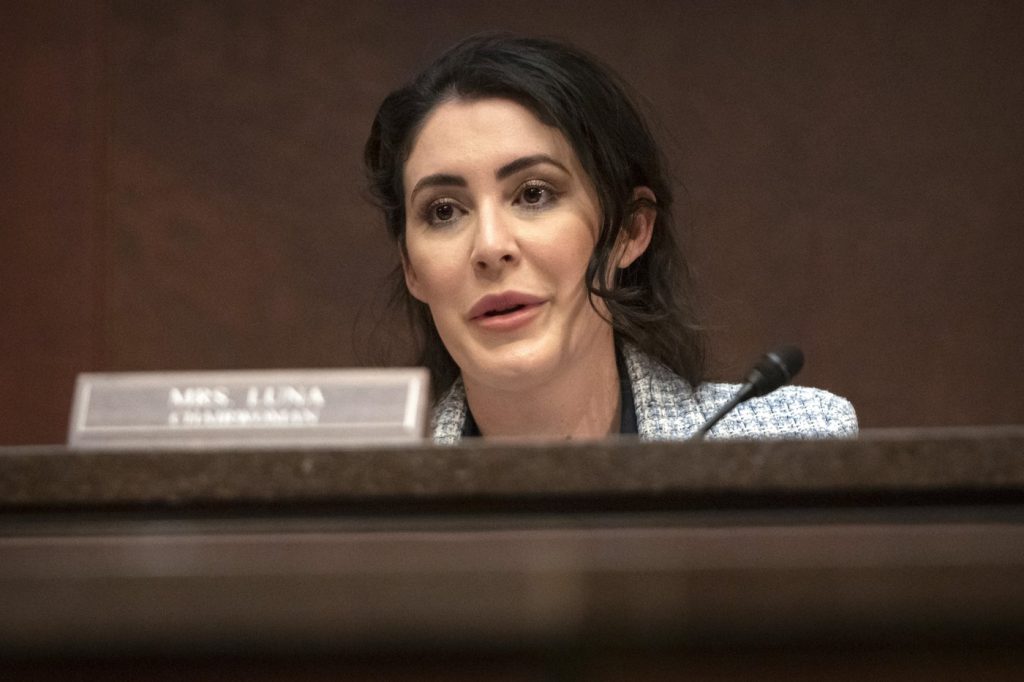In the fall of 2023, Anna Paulina Luna, a first-term Republican Congresswoman from Florida, found herself grappling with the challenges of being a new mother while serving in Congress. After facing complications from childbirth, Luna was unable to fly to Washington, D.C., to cast votes, a crucial responsibility of her role. This situation prompted her to seek solutions within the House rules, ultimately leading to her proposal for a proxy voting system specifically for new mothers.
Luna discovered that around a dozen women had given birth while serving in Congress and believed a simple adjustment to the voting rules could benefit them. However, her seemingly minor request turned into a significant political battle within her own party. The discussion soon evolved into a broader debate about how a centuries-old institution like Congress can adapt to support working parents in modern times.
Initially, Luna approached then-Speaker Kevin McCarthy to inquire about voting procedures after childbirth, unaware that proxy voting had been a contentious issue since its introduction during the COVID-19 pandemic. Although intended to ensure safety during the health crisis, the system faced opposition from Republicans, including McCarthy, who deemed it a “dereliction of duty.” When Republicans reclaimed majority control in 2022, they discontinued proxy voting.
After Luna returned to Washington post-maternity leave, she quietly worked on her proposal, but the political climate was turbulent due to the recent removal of McCarthy and the election of new Speaker Mike Johnson. In January 2024, Luna formally introduced her bill to allow new mothers to designate a proxy for six weeks, but as months passed without progress, she decided to push her proposal through a discharge petition requiring 218 supporting signatures to force a vote on the House floor.
Despite her efforts, Luna struggled to gain traction. Recognizing the limitations of her initial proposal, she reached out to Democrats, collaborating with Representatives Brittany Pettersen and Sara Jacobs to create a more inclusive plan extending proxy voting benefits to all new parents for 12 weeks. This version garnered a significant following, but only a few signatures came from Republican members.
Luna faced fierce opposition from the Freedom Caucus and Speaker Johnson, who criticized the proposal as “unconstitutional.” Dishearteningly, Luna resigned from the Freedom Caucus, claiming they were actively sabotaging her efforts. Her challenge became even more complicated when Johnson attempted to quash her discharge petition by linking it to the passage of unrelated legislation, a strategy that ultimately failed.
In a pivotal moment, following a conversation with former President Donald Trump, who expressed support for Luna's idea, Johnson announced that he was also in favor of the concept, sparking a flurry of political turbulence. Right-wing influencers began accusing Luna of obstructing Trump's agenda, intensifying pressure from within her party.
After negotiations, in October 2024, Luna and House leadership reached a compromise involving a voting procedure called “pairing,” which would allow members on opposing sides of an issue to cancel each other's votes. Although the measure was presented as a solution to support parents, it was met with mixed reactions. Some lawmakers found it impractical, while others saw potential benefits. Luna continued to advocate for family-friendly policies, expressing the importance of accommodating the demands of parenthood within congressional duties.
As the situation unfolded, political dynamics remained tense. The evolution of Luna's proposal highlighted the ongoing struggle within Congress to adapt to contemporary workforce needs while reflecting on historical practices. This dialogue revealed a significant interest from younger members in finding solutions that ensure parental involvement amidst the rigid structures of legislative work.










